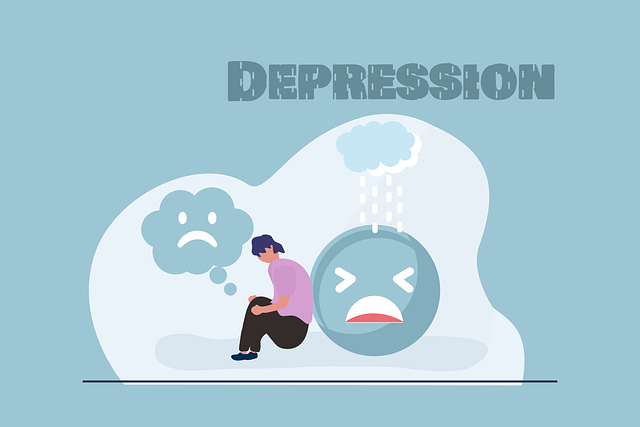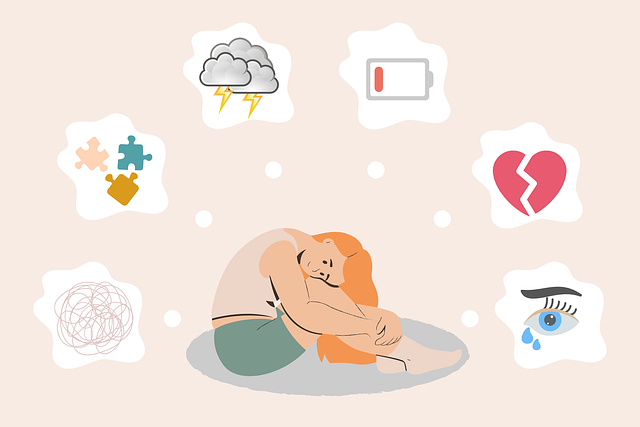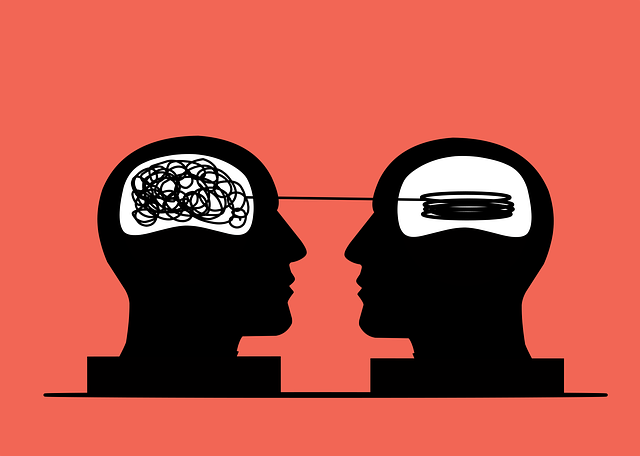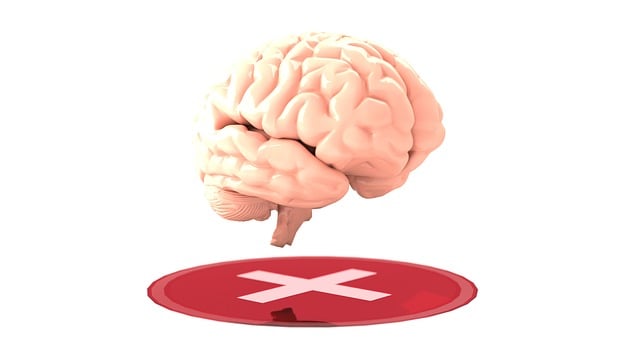Anxiety disorders, often stemming from trauma or chronic stress, can significantly impact daily life in Colorado Springs. Professional help through Colorado Springs Alcohol Abuse Therapy focuses on cognitive-behavioral therapy (CBT), mindfulness practices, and holistic lifestyle changes to manage anxiety effectively. CBT identifies and alters negative thought patterns, reducing avoidant behaviors and co-occurring alcohol abuse. Mindfulness meditation promotes relaxation and present-moment awareness, while cultural sensitivity ensures inclusive care. Holistic approaches including exercise, diet, and sleep also enhance overall mental health in Colorado Springs, empowering individuals to take charge of their well-being.
Anxiety is a prevalent challenge, but managing it effectively can lead to improved mental health and well-being. This comprehensive guide explores various techniques for tackling anxiety, offering insights tailored to Colorado Springs residents seeking relief. From recognizing subtle signs and understanding triggers to adopting lifestyle changes and exploring evidence-based therapies like Cognitive Behavioral Therapy (CBT), this article equips readers with tools to navigate anxiety. Additionally, it introduces complementary practices for enhanced anxiety management.
- Understanding Anxiety: Recognizing the Signs and Causes
- Lifestyle Changes for Better Mental Health
- Cognitive Behavioral Therapy (CBT): A Powerful Tool
- Complementary Techniques to Enhance Anxiety Relief
Understanding Anxiety: Recognizing the Signs and Causes

Anxiety is a natural response to stress, but when it becomes overwhelming and persistent, it can significantly impact daily life. Recognizing the signs and understanding the causes of anxiety is the first step in managing it effectively. Common symptoms include rapid heartbeat, shortness of breath, sweating, restlessness, and a feeling of dread or panic. These physical and emotional indicators often manifest as a reaction to perceived threats or stressors.
In Colorado Springs, many individuals struggle with anxiety that can be linked to various factors, such as trauma, genetic predisposition, or chronic stress. Alcohol abuse, for instance, is sometimes used as a coping mechanism for anxiety but can exacerbate the problem in the long run. Seeking help from professionals specializing in Colorado Springs alcohol abuse therapy and inner strength development can offer valuable communication strategies and stress management workshops to address these underlying issues. Effective treatment may include cognitive-behavioral therapy (CBT), mindfulness practices, and learning healthy coping mechanisms to build resilience against anxiety triggers.
Lifestyle Changes for Better Mental Health

Incorporating lifestyle changes is a powerful tool for managing anxiety and improving overall mental health. Colorado Springs Alcohol Abuse Therapy centers often emphasize holistic approaches, recognizing that physical well-being significantly impacts our psychological state. Simple yet effective adjustments like regular exercise, a balanced diet, and adequate sleep can be game-changers in the battle against anxiety. Physical activity releases endorphins, acting as natural stress reducers and enhancing mood. A healthy diet provides essential nutrients that support brain function, while quality rest allows for better stress management and improved cognitive performance.
Additionally, reducing the stigma associated with mental illness through awareness campaigns and open conversations is vital. This encourages individuals to seek help without fear of judgment. For mental health professionals, risk management planning is essential. It involves creating strategies to prevent burnout and promote self-care, ensuring they can effectively support their clients. By combining lifestyle changes and stigma reduction efforts, individuals can take charge of their mental well-being, fostering a healthier and more supportive community in Colorado Springs.
Cognitive Behavioral Therapy (CBT): A Powerful Tool

Cognitive Behavioral Therapy (CBT) has emerged as a powerful tool in the arsenal against anxiety disorders. This evidence-based approach focuses on identifying and changing negative thought patterns and behaviors that contribute to anxiety, offering individuals effective coping skills for managing their symptoms. By helping patients challenge and reframe distorted thinking, CBT empowers them to confront fears and avoidant behaviors, ultimately fostering resilience and improved mental well-being.
In the context of Colorado Springs Alcohol Abuse Therapy, CBT plays a significant role in addressing co-occurring anxiety disorders. Through structured sessions, clients learn to recognize triggers, develop healthy coping strategies, and gain a deeper understanding of their relationship with alcohol as a means of managing anxiety. This integrated approach not only targets alcohol abuse but also supports Mental Illness Stigma Reduction Efforts by promoting self-acceptance and evidence-based treatment adherence, while also aiding in the Risk Assessment for Mental Health Professionals by providing structured protocols for effective therapy delivery. Additionally, CBT encourages the development of coping skills that extend beyond therapy, enabling individuals to navigate life’s challenges with enhanced emotional regulation.
Complementary Techniques to Enhance Anxiety Relief

In addition to traditional therapy practices, individuals seeking anxiety management can benefit from a variety of complementary techniques designed to enhance relief and improve overall well-being. Mindfulness meditation, for instance, has been shown to reduce symptoms of anxiety by fostering present-moment awareness and promoting relaxation responses within the body. This ancient practice, often integrated into Colorado Springs Alcohol Abuse Therapy programs, encourages individuals to observe their thoughts and emotions without judgment, thereby reducing the impact of anxious thoughts.
Cultural sensitivity in mental healthcare practice plays a crucial role in effective anxiety management, especially when addressing diverse populations. Recognizing and respecting individual cultural beliefs and values can enhance therapeutic outcomes by tailoring interventions to align with specific backgrounds. Additionally, Mental Illness Stigma Reduction Efforts contribute significantly to creating inclusive environments that encourage individuals to seek help without fear of judgment or discrimination.
Anxiety management is a multifaceted approach, and by combining insights from understanding anxiety, lifestyle adjustments, evidence-based therapies like CBT, and complementary techniques, individuals in Colorado Springs can effectively navigate and overcome their mental health challenges. Embracing these strategies empowers one to lead a more balanced and fulfilling life, free from the relentless grip of anxiety.














